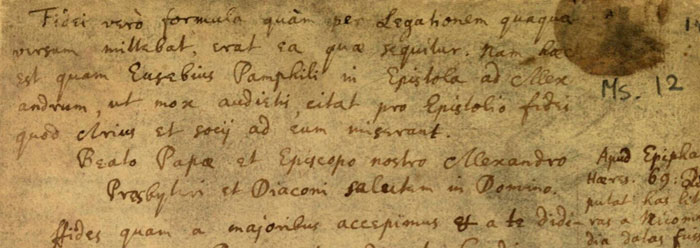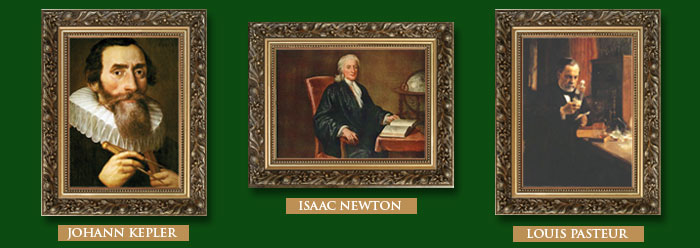Sir Isaac Newton is recognized by many as perhaps the greatest scientist who ever lived. But few know "that Newton was also a Christian and a Bible scholar."1 In fact, he wrote more about Scripture than about science, and finally after 300 years, his theological works are now available online for all to see.
The National Library of Israel digitized his theological notes and papers, originally handwritten with flowing penmanship on parchment. "These papers introduce facets of Newton's personality and work that the public has never before encountered," according to the National Library's introduction to the Newton collection.2
For example, few may know Newton's perspective on Bible study. In one paper, he wrote, "But search the scriptures thy self and that by frequent reading and constant meditation upon what thou readest and earnest prayer to God to enlighten thine understanding if thou desirest to find the truth."3
Modern physics textbooks teach Newton's laws of motion, but students are not generally exposed to his prescription for truth discovery. Why have secularized, modern cultures emphasized and valued Newton's scientific contributions, yet downplayed and devalued his theological contributions?
Milka Levy-Rubin of the Hebrew University of Jerusalem's Department of History told the Associated Press:
Today, we tend to make a distinction between science and faith, but to Newton it was all part of the same world. He believed that careful study of holy texts was a type of science, that if analyzed correctly could predict what was to come.4
If Newton was able to study both science and the Bible without conflicts, then why should anyone frown upon scientists who do the same today?
God is a rational being, and thus one should expect His creation to reflect His rationality and His intelligent creatures to comprehend what He has made. The founders of today's scientific disciplines, including Newton, were motivated by "a confidence in the 'rationality' behind the universe and the 'goodness' of the material world."5
So, it makes perfect sense that those who study His creation would also study Him, as Newton advocated. "After all, if the Bible is God's Word and it reveals Truth, then the closer we get to the Truth in our presuppositions, the faster we will discover the Truth in the details."1
References
- Vardiman, L. Newton's Approach to Science: Honoring Scripture. Presented at the Fourth Christian Scholarship. Boulder, Colorado, October 9-12, 1997. Christian Leadership Ministries of Campus Crusade.
- Newton Manuscripts. The National Library of Israel. Posted on web.nli.org, accessed February 16, 2012.
- Newton, I. Newton Papers 1.1, 002r. The National Library of Israel. Posted on web.nli.org, accessed February 16, 2012.
- Heller, A. Israeli library uploads Newton's theological texts. Associated Press, February 15, 2012.
- Varughese, T. V. 1993. Christianity and Technological Advance - The Astonishing Connection. Acts & Facts. 22 (11).
* Mr. Thomas is Science Writer at the Institute for Creation Research.
Article posted on March 23, 2012.






















